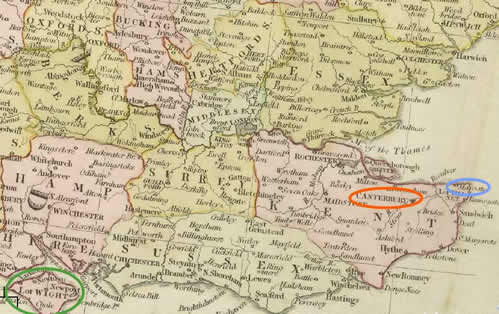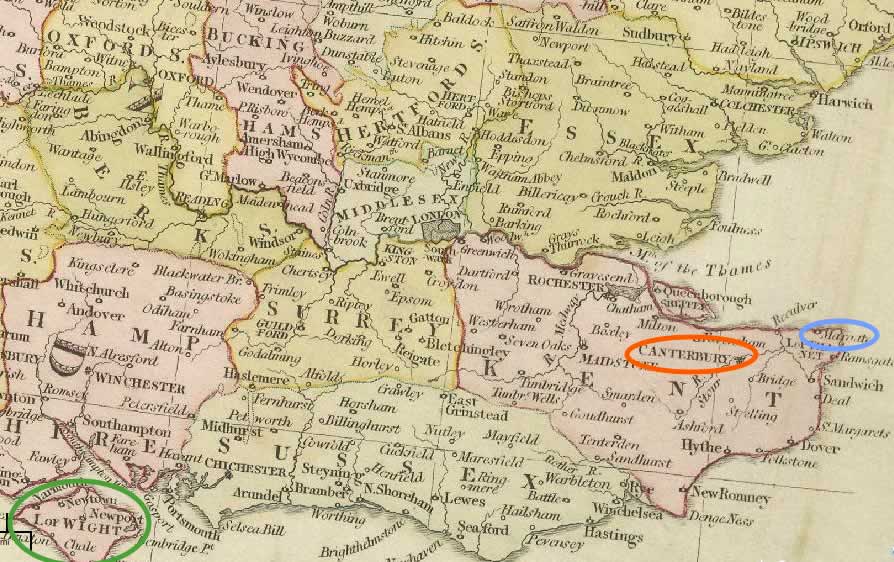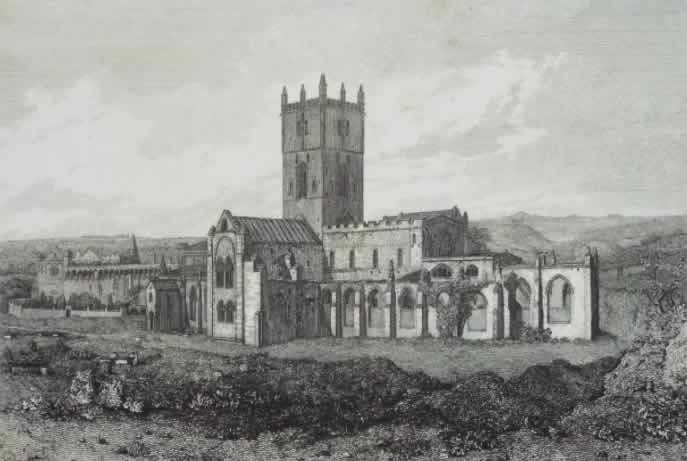16 May 1817: Canterbury, Daily Work on Endymion, Ultimate
Progression,
& Hunt’s Damning Influence
Margate to Canterbury


With his younger brother, Tom, Keats (aged 21) is off to Canterbury from Margate. He continues works on the first book of Endymion, which, in Carisbrooke on the Isle of Wight, he begins about the third week in April.
Earlier in the day, from Margate, Keats writes to his new publishers, Taylor & Hessey,
thanking them for an advance of 20 pounds to help with his dragging debts. Keats needs
the
money badly—in fact, for most of his adult life he needs money badly, since access
to money
from his family estate is doled out to him in inconsistent trickles (mainly credit
based on
inherited family money). Keats at moments seems unaware of what exactly is owed to
him and his
siblings from the family estate, and neither does, it seem, the trustee of the account,
Richard Abbey. He tells his publishers that he has
been working day by day at my Poem [Endymion] for a
Month
but feels his Brain so overwrought
that he needs to take a few days off: he
writes that instead of Poetry I have a swimming in my head—And feel all the effects of a
Mental Debauch—lowness of Spirits—anxiety to on without the Power to do so which does
not at
all tend to my ultimate Progression
(16 May). He hopes that Canterbury’s association
with Chaucer will set him forward like a
Billiard-Ball.
Noteworthy at this point is that Keats airs some serious doubts about Leigh Hunt’s character and Hunt’s delusions
about being a
great Poet
(letters, 11 May), which is interesting inasmuch as just a few months
earlier Keats appears in awe of Hunt’s reputation—and no doubt he holds some gratefulness
for
Hunt’s initial support of his poetic abilities and ambitions. We have to recall that
Keats
dedicates his first collection of poems to Hunt, so these doubts about Hunt’s poetic
prowess
are noteworthy. Moreover, it is Hunt—as publisher, critic, poet, essayist, celebrity
journalist—who in October 1816, upon immediately meeting and liking Keats, introduces
him into
a London network of writers, artists, publishers, and critics, many of whom go on
to support
Keats’s poetic progress as he searches for models to emulate and directions to pursue.*
Keats,
though, as he surveys the literary landscape for inspiration, is at moments inclined
to
believe that, following critic and friend William
Hazlitt, that Shakespeare
is enough for us
(letters, 11 May). One of his goals, then, is to parse the qualities
and nature of Shakespeare’s genius, which, just over a year later, he claims to have
accomplished: thank God I can read and perhaps understand Shakespeare to his depths
(4
March 1818). The claim is, in fact, remarkable, and reflects aspects of what he hopes
to
achieve in his own work.
That first collection, Poems, by John Keats, is reviewed in
European Magazine, by one of Keats’s former friends, George Felton Mathew (signed G. F. M.
). While
the review acknowledges Keats’s occasional fine ear
and his imaginative gifts, it
suggests Keats luxuriates too much in the latter and in somewhat offensive and puerile
directions. Importantly, and quite rightly, the conservative Felton suggests that
almost
all these poems [savours too much] of the foppery and affectation of Leigh Hunt!
(We might also be reminded that Mathew’s remarks
are tainted by his mistrust of Keats’s politics and personal manner, as well as perhaps
some
jealousy of Keats’s new affiliation with Hunt and his circle; as an aspiring poet,
Mathew is
also implicitly aware that Keats’s poetic accomplishments are quickly exceeding his
own.) So
too in June does Keats receive the similar charge in an ostensible note from Observer
in the weekly London paper, Anti-Gallican Monitor, 8 June,
who notes that Keats’s poems are the echo of Mr. Hunt’s—his style in every respect,
and
thus will lead to the annihilation
of his poetry.*
The message of a negative connection with Hunt is not lost on Keats, especially in terms of moving forward with his poetic aspirations; and this is neither the first nor last time he hears it. Association with Hunt, then, initially dogs both Keats’s style and reputation—though at a certain point it also urges his progress by a kind of poetic reaction formation.
*See here for a graphing of Keats’s social and intellectual network.

*Keats’s style and poetic lexicon is denounced in a subsequent note by Observer
on 16
June.

